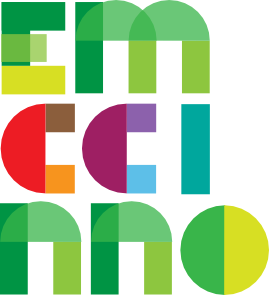Main observation
Cultural and artistic activities not only raise society’s awareness of climate issues but they can also contribute to the economic sustainability of the cultural and creative sector. Yet, this sector includes many small and medium-sized organisations that often rely on limited resources and are thus becoming more vulnerable as global heating accelerates.

Our contribution
EMCCINNO addresses the urgent need to equip Cultural and Creative Industries (CCIs) with tested and validated tools to increase their capacity to rapidly adapt and contribute to the climate transition.
EMCCINNO’s departing hypothesis is that a subset of organisations within the CCI (cultural and artistic social enterprises, CASE) are better suited to identify emerging social demands and environmental priorities, propose innovative and creative solutions to meet them and change values and imaginaries and inspire blueprints within the CCI and beyond it.
Working with five CASE across five different European countries (France, Germany, Hungary, Portugal and Spain) ready to design, test, refine, and validate sustainable business models that will be implemented into several prototypes to drive real-world impact within small and medium-sized CCIs.
EMCCINNO proposes a unique framework for sustainable business models for SCT composed of three crucial dimensions (artistic, ecological and organisational)
How will EMCCINNO test this hypothesis?
CASEs represent diverse and flexible business models, whose positive role as drivers for a sustainable climate transition has not yet been assessed. EMCCINNO strives to embed SCT in the cultural and creative sector considering the in, with and through arts dimensions.
IN arts: how to reduce their ecological footprint in the production of arts and culture, for instance by using renewable energies or recycled materials.
WITH arts: using arts and culture production to raise public awareness and shape new value and imaginaries, for instance through exhibitions, photos, theatre performances.
THROUGH arts: using arts and culture as methods to foster engagement in the transition, for instance through participatory arts and community culture.
EMCCINNO’s ultimate goal is to contribute to the EU’s ambitious climate goals.


